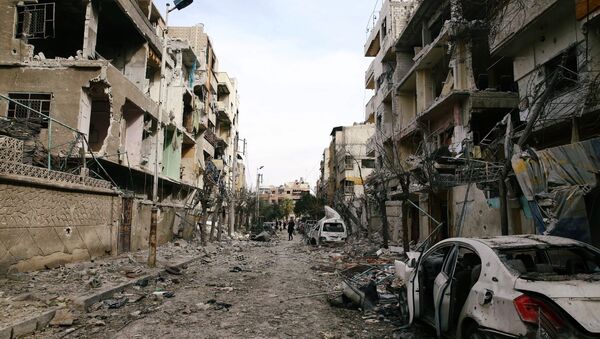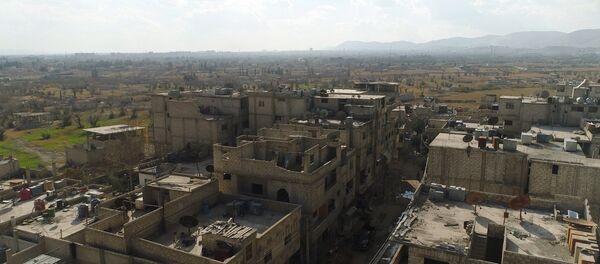"The major clause of this resolution requires that all — I emphasize, all — the parties to the Syrian conflict agree on a ceasefire in order to provide at least a 30-day pause for delivery of humanitarian aid," Lavrov said at a press conference in Namibia, adding that Damascus is being pressured to stop its military operation despite it targeting al-Nusra Front militants who are not covered by the truce regime.
He went on to say Russia has mounting evidence that "Western partners, especially the United States, would like to take the heat off al-Nusra Front, which has now changed its name — but this does not mean it has changed its nature — and save it, in case they decide to return to plan 'B,' which is to change the regime in Damascus."
READ MORE: UNHRC Resolution on Syria Has Nothing to Do With Human Rights Concerns — Moscow
The foreign minister stressed that al-Nusra Front is a terrorist group, adding that Russian and Syrian efforts to battle it are in line with the requirements of the ceasefire regime settled by the UNSC resolution.
The resolution stipulates, though, that the cessation of hostilities does not apply to military operations against Daesh, al-Qaeda, Nusra Front "and all other individuals, groups, undertakings and entities associated with terrorist groups, as designated by the Council."
The al-Nusra militants, who have entrenched themselves in East Ghouta east of the Syrian capital along with other terrorists, have been violating the ceasefire by shelling Damascus neighborhoods and preventing civilians from leaving the area.
*Daesh (also known as ISIS/ISIL/IS) is a terrorist group banned in Russia



